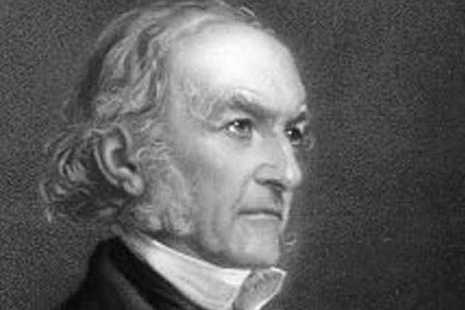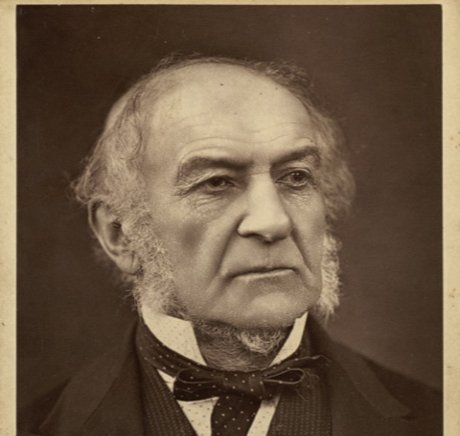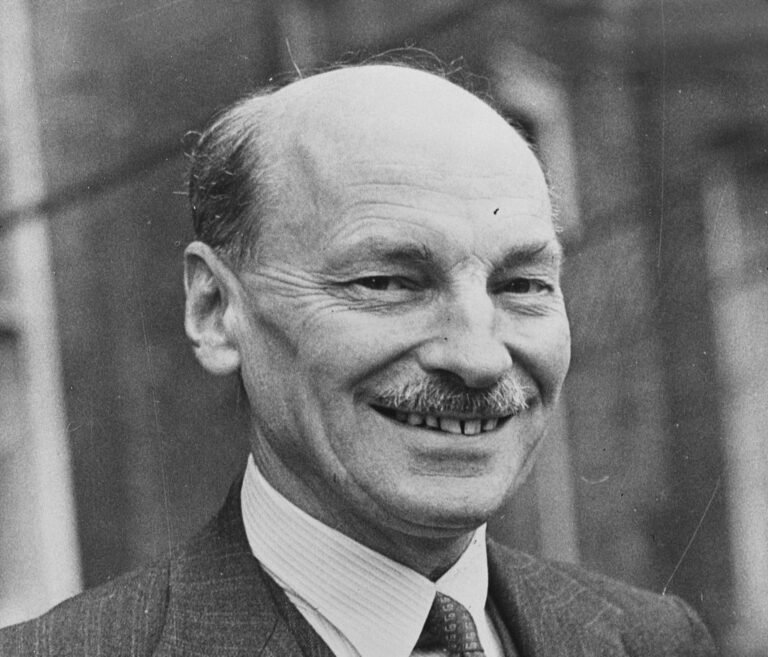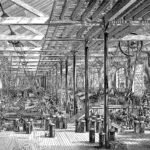William Gladstone was a towering figure in British politics. His legacy spans over six decades.
Known for his dedication and influence, Gladstone served as Prime Minister four times. His career was marked by reform and progress, leaving a lasting impact on the nation. Gladstone’s speeches and writings showcased his eloquence and passion for change, making him a revered statesman.
Understanding Gladstone’s life reveals the transformation of Britain during the 19th century. He championed economic and social reforms, advocating for the welfare of the public. His commitment to justice and equality paved the way for future leaders. Gladstone’s journey is a fascinating study of ambition and principle. His story offers valuable insights into the complexities of leadership. Explore the life of William Gladstone to appreciate his role in shaping modern Britain.

Credit: www.britannica.com
Early Life
William Gladstone, a prominent British statesman, had a fascinating early life. His experiences shaped his future and political career. Understanding his childhood and education provides insight into the foundation of his character.
Childhood
William Ewart Gladstone was born on December 29, 1809, in Liverpool, England. His father, John Gladstone, was a wealthy merchant and an influential figure. His mother, Anne MacKenzie Robertson, was known for her strong moral values. Growing up in a large family, William had five siblings. The family environment was nurturing and supportive.
Gladstone’s childhood was marked by privilege and opportunity. He had access to the best resources of the time. He enjoyed a loving family atmosphere that emphasized education and moral responsibility. These early experiences were crucial in shaping his compassionate and ethical outlook.
Education
William Gladstone’s formal education began at home with private tutors. He displayed a keen intellect and a love for learning from a young age. At the age of eleven, he attended Eton College, one of the most prestigious schools in England. There, he excelled academically and developed a passion for literature and classical studies.
After Eton, Gladstone continued his education at Christ Church, Oxford. He studied a wide range of subjects, including philosophy, history, and mathematics. His time at Oxford was formative, and he graduated with a degree in 1831. His academic achievements earned him respect and recognition, paving the way for his future endeavors.
Education played a pivotal role in Gladstone’s development. It not only equipped him with knowledge but also instilled in him a sense of duty and public service. These values guided him throughout his illustrious career.
Political Beginnings
William Gladstone’s political journey is a fascinating tale of dedication and transformation. His early days in politics set the stage for a remarkable career that would see him becoming one of Britain’s most influential statesmen. Let’s delve into the beginnings of his political life.
Entry Into Parliament
At the age of 22, Gladstone entered the British Parliament. He secured a seat as the Member of Parliament (MP) for Newark in 1832. This marked the beginning of his long and impactful political career.
Imagine being in your early twenties and stepping into the world of politics. It’s a daunting task, but Gladstone embraced it with enthusiasm and determination. He was known for his strong oratory skills, which quickly made him a standout figure.
First Political Roles
Gladstone’s initial roles in government were crucial to his development as a politician. He served as a Junior Lord of the Treasury and later as Under-Secretary of State for War and Colonies. These positions gave him valuable insights into the workings of government.
In these roles, he gained experience in managing the finances and military affairs of the nation. It was during this time that he began to shape his political beliefs and strategies. His dedication and hard work did not go unnoticed.
One can’t help but wonder how these early roles influenced his future decisions and policies. How did they shape his approach to governance and reform?
Reflecting on Gladstone’s beginnings, it’s clear that his early experiences were pivotal. They not only honed his skills but also prepared him for the greater challenges that lay ahead. What can we learn from his journey? Perhaps, the importance of seizing opportunities and learning from every role, no matter how small.
Prime Minister Terms
William Gladstone, a prominent British statesman, served as Prime Minister four times. His terms were marked by significant political and social changes. Each term had its unique challenges and achievements.
First Term
Gladstone’s first term as Prime Minister began in 1868. He focused on reforms in Ireland and education. He passed the Irish Church Act, disestablishing the Anglican Church in Ireland. He also introduced the Elementary Education Act, making schooling accessible to all children.
Second Term
Gladstone returned to power in 1880. He dealt with foreign policy issues and domestic reforms. His government passed the Third Reform Act, extending voting rights to more men. The Irish Land Act was another key achievement, aimed at improving tenant rights.
Third Term
Gladstone’s third term started in 1886. This period was dominated by the Irish Home Rule issue. He introduced the Home Rule Bill, which aimed to give Ireland its own parliament. The bill faced strong opposition and ultimately failed.
Fourth Term
Gladstone’s final term began in 1892. He continued to push for Irish Home Rule. He introduced another Home Rule Bill in 1893. The bill passed in the House of Commons but was defeated in the House of Lords. Gladstone resigned in 1894, ending his political career.
Economic Policies
William Gladstone’s economic policies focused on free trade and reducing government spending. He aimed to lower taxes and improve fiscal responsibility.
William Gladstone, a prominent British statesman, had a profound impact on the country’s economic landscape during his tenure. His economic policies were marked by significant changes in taxation and trade, designed to foster growth and stability. Let’s dive into the specifics of his strategies in these areas.
###
Tax Reforms
Gladstone believed in simplifying the tax system to make it fairer and more efficient. He reduced the number of taxes and cut down on complicated tax codes. This approach made it easier for businesses to operate and for individuals to understand their tax obligations.
He also focused on lowering taxes for the middle and working classes. This was intended to boost disposable income and stimulate economic activity.
Gladstone’s tax reforms aimed to balance the budget without overburdening the citizens. He was cautious about not imposing high taxes, understanding that it could stifle economic growth.
###
Trade Policies
Gladstone was a strong advocate of free trade. He believed that removing trade barriers would benefit the economy by increasing competition and lowering prices.
He worked to eliminate tariffs and other restrictions on trade. This encouraged international trade and made British goods more accessible globally.
Gladstone’s trade policies aimed to create a more open and competitive market. He understood that fostering international partnerships was crucial for economic prosperity.
Have you ever wondered how simplifying taxes could impact your daily life? Gladstone’s reforms show us that a straightforward tax system can lead to more economic stability and growth.
Consider how free trade can affect your choices as a consumer. Gladstone’s policies made a wide range of products available at lower prices, illustrating the power of open markets.
Gladstone’s economic policies were practical and forward-thinking. They provide valuable lessons on the importance of simplicity and openness in economic strategy. How could these principles apply to today’s economic challenges?
By examining Gladstone’s approach, we can better understand the potential of well-structured tax and trade policies to drive economic success.
Social Reforms
William Gladstone played a key role in social reforms. He worked to improve education and voting rights. His efforts aimed at creating a fairer society.
William Gladstone, one of Britain’s most influential prime ministers, was a champion of social reforms. His efforts aimed at improving the lives of ordinary citizens and creating a fairer society. Let’s delve into some of his key initiatives that left a lasting impact on the nation.
### Education Initiatives
Gladstone believed education was the cornerstone of a progressive society. He pushed for reforms to make education accessible to all, regardless of social class.
In 1870, the Elementary Education Act was passed, mandating primary education for children. This act ensured that every child had the opportunity to learn basic skills like reading and writing.
Imagine living in a time where most children didn’t go to school. Gladstone’s initiative changed that, giving countless children a chance to improve their future. How different would your life be if you never had access to education?
### Labor Laws
Gladstone also focused on improving working conditions. He understood the struggles faced by laborers and sought to protect their rights through legislation.
The Factory Act of 1874 limited working hours for women and children. This act was significant because it recognized the need for humane working conditions, which was a revolutionary idea at the time.
Think about how modern labor laws impact your daily work life. Without Gladstone’s efforts, the workplace might still be unsafe and unfair. Can you imagine working 12-hour shifts in dangerous conditions, like many laborers did before these reforms?
Gladstone’s commitment to social reforms laid the foundation for a fairer and more equitable society. His educational and labor laws were pivotal in shaping modern Britain, ensuring that everyone had the opportunity to thrive. What other social reforms do you think are essential for a fair society today?

Credit: en.wikipedia.org
Foreign Affairs
William Gladstone, a key figure in British politics, had a significant impact on foreign affairs. His policies shaped the global influence of the British Empire. He navigated complex international relations with a keen sense of justice and morality.
Colonial Policies
Gladstone’s approach to colonial policies was unique. He believed in self-governance for colonies. He opposed expansionist policies and focused on improving relations with existing colonies. Gladstone’s speeches often highlighted the importance of fair treatment. His views sometimes clashed with imperialists who wanted more control.
He worked to protect the rights of indigenous people. Gladstone’s government introduced reforms to improve colonial administration. These policies aimed to reduce exploitation and ensure fair governance. His commitment to ethical practices in colonies set him apart from many contemporaries.
Relations With Europe
Gladstone’s foreign policy also emphasized good relations with Europe. He sought peace and cooperation over conflict. He played a pivotal role in the Congress of Berlin in 1878. This event aimed to resolve tensions in the Balkans. Gladstone advocated for the rights of smaller nations during the negotiations.
He believed in diplomacy and dialogue. His efforts often focused on preventing wars and promoting stability. Gladstone’s vision for Europe included a balance of power. He worked to maintain friendly relations with major European powers. His strategies helped to avoid large-scale conflicts during his time in office.
Personal Life
William Gladstone, a prominent figure in British politics, had a rich personal life. His family and hobbies played significant roles in shaping his character.
Family
Gladstone was born into a wealthy family. His father, Sir John Gladstone, was a successful merchant. His mother, Anne MacKenzie Robertson, came from a Scottish family. William married Catherine Glynne in 1839. They had eight children together. The couple shared a strong bond throughout their lives.
Hobbies And Interests
William Gladstone had varied interests. He loved reading and had a vast library. He often read books in multiple languages. His favorite authors included Dante and Homer. He also enjoyed physical activities. He liked chopping down trees. This activity helped him relax. Gladstone was a devout Christian. He often spent time in prayer and reflection. His faith influenced his political decisions.
Legacy
William Gladstone’s legacy includes his role as a four-time British Prime Minister. His dedication to social reforms and economic policies greatly shaped modern Britain.
## Legacy
William Gladstone’s legacy is a fascinating topic. His influence on British politics and society is profound. He was a man of principles and conviction, shaping the nation’s path in significant ways.
### Impact on British Politics
Gladstone’s impact on British politics is undeniable. He served as Prime Minister four times, a record unmatched to this day. His dedication to public service and political reforms transformed the landscape of British governance.
He championed liberal policies, advocating for free trade and the expansion of civil liberties. His efforts in education reform laid the foundation for modern public education.
One of his notable achievements was the Irish Home Rule movement. It was a bold attempt to grant Ireland more self-governance, showcasing his commitment to justice and equality.
### Contemporary Views
Even today, Gladstone’s legacy sparks debate. Some admire his unwavering dedication to liberal principles. Others criticize his stance on certain issues, like his later views on imperialism.
Historians often view Gladstone as a complex figure. His progressive policies earned him respect, but his methods and decisions sometimes faced opposition.
You might wonder how a historical figure like Gladstone still resonates. The answer lies in his relentless pursuit of progress. His legacy encourages us to strive for meaningful change, even when faced with challenges.
What do you think about Gladstone’s enduring influence? Do you see parallels in today’s political leaders? Reflect on how his legacy can inspire modern governance.

Credit: www.gov.uk
FAQs
What Was William Gladstone Known For?
William Gladstone was known for serving as British Prime Minister four times. He championed liberal policies and social reforms.
How Many Slaves Did William Gladstone Own?
William Gladstone did not own slaves directly. His family, however, benefited financially from slavery.
Why Was Gladstone So Popular?
Gladstone was popular due to his strong leadership, commitment to reforms, and ability to connect with the public. His policies promoted social justice and economic stability, earning widespread support.
What Did William Gladstone Do For The Irish?
William Gladstone introduced reforms to help Ireland. He passed the Land Acts, aimed to improve tenant rights, and supported Home Rule.
Conclusion
William Gladstone’s legacy remains significant in history. His dedication to public service inspires many. He worked tirelessly for social reforms. His speeches and policies still influence today’s politics. Gladstone’s life shows the power of commitment. Understanding his impact helps appreciate modern governance.
His story is a reminder of the importance of leadership. Reflect on his achievements and be inspired.








